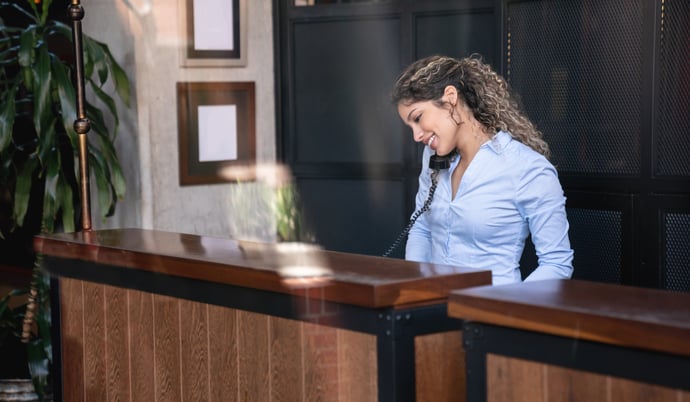
There’s no sense in beating about the bush — the hotel, travel, and tourism industries are in the middle of the worst downturn they’ve possibly ever seen. Hotels are suffering lower booking and occupancy rates than during the Great Recession of 2008 or the post-9/11 era, and they’re having to make some hard choices about how to stay afloat.
The Unique Problem for Hotels
One of the reasons that hotels have been hit so hard is that most hotel work can’t be done remotely. While many companies are switching to a distributed work model, guests can’t stay in a hotel room remotely. Your staff can’t man the front desks or tend bar or clean rooms from home. If no one’s traveling, there’s not much for a hotel to do.
What you can do is try to stay operational, keep up the relationships you have, and cut costs where you can to keep your hotel from going under. In order to do that, communication will be paramount. You’ll need to be able to field calls from potential customers, keep in touch with your staff, and keep a skeleton crew running on-site at the physical building to keep everything working. That’s where a VoIP system can be a huge help.
The Benefits of VoIP
VoIP, short for Voice over Internet Protocol, is a system by which your phone signals are sent over the same data lines as your internet connection, whether that’s cable, satellite, fiber, or however else you connect to the web. Rather than using an old analog system, which requires copper phone wires to be laid throughout your building, a VoIP system works anywhere there’s an internet connection.
There are many benefits to a VoIP system — call quality, cost, and scalability among others — but in these strange and difficult times, one of the most useful is its portability. Since a given phone number is no longer tied to a specific port in the wall, you can take calls from anywhere you have an internet connection.
Running a Hotel From Afar
The number of people booking hotels has plummeted, but it’s not zero. People are still traveling or planning to travel, and they need help booking hotels for their upcoming trips. That means you still need to be able to pick up the phone, even if travel restrictions and stay-at-home orders make it implausible for your staff to man the front desk in person.
With a VoIP system, your staff can answer phone calls from their own home at the same phone number that you usually use — you won’t need to update your contact information on your website and your guests will be none the wiser. You can even set up your booking software online so that your staff can do all the functions of the front desk from the comfort and safety of their homes.
The same goes for executives that will need to handle calls about billing, site maintenance, vendors, and everything else you’d normally be doing from your office. By forwarding those numbers, you can handle the day-to-day business operations of your hotel from anywhere.
A virtual phone number and the ability to field calls remotely might just be the stopgap you need to keep your hotel running during these difficult times. It can allow you to operate without an office space, saving you money. And more importantly, it’ll allow you to keep your current clients happy, which will be paramount when your business starts up again.
The truth is, we don’t know how long this crisis will last or what the world will look like when things finally return to something like normal. All we can do is to try to weather the storm as best we can, and the ability to communicate will be one of the best ways to do that.

